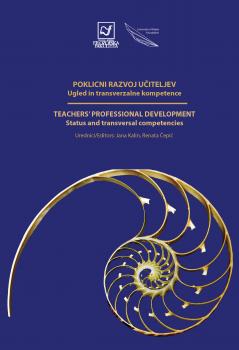Teachers' professional development: Status and transversal competencies
Keywords:
Teachers’ professional development, status, personality, transversal competenciesSynopsis
This monograph was written as a result of joint research work done by colleagues from the Faculty of Arts at the University of Ljubljana and from the Faculty of Teacher Education at the University of Rijeka. It was created within the framework of the research project “Teachers’ professional development: status, personality and transversal competencies”. The text is focused on the professional development of teachers from the perspective of needs that teachers identify for the quality performance of their work, and from the perspective of how they assess their competencies in different areas of professional activity. The authors were especially interested in teacher competences for developing the students’ (so-called) transversal competencies. They are becoming a necessity in the modern world and are one of the fundamental goals we want to reach with education (for example, developing metacognitive skills, critical thinking, accepting differences in inclusive environments). Special attention is given to analysing the reputation of the teaching profession in the society from the perspective of teachers themselves. The results are presented comparatively for Slovenia and Croatia, which brings us interesting insights and brings forward new questions. The two countries are geographically close and have a similar system of upbringing and education. On the other hand, the differences in culture and in social values, as well as in the amount of financial resources the countries intend for education, point to numerous differences.
Chapters
-
Foreword
-
Introduction
-
Teachers’ professional development: Context, perspectives, and challenges
-
Status of the teacher and the teaching profession: views from within
-
Teachers’ professional competencies as predictors of teacher beliefs about self-regulated learning
-
Teachers’ professional competencies for individualised instruction in inclusive classrooms
-
Concluding remarks
Downloads


